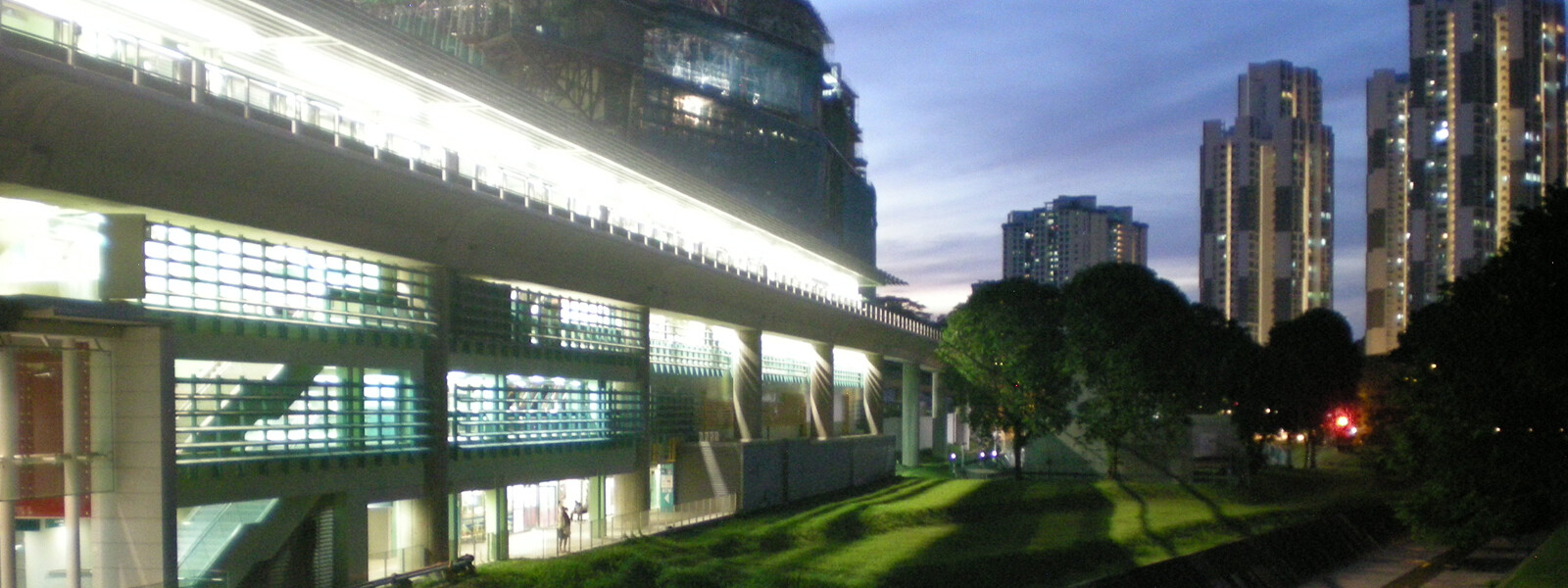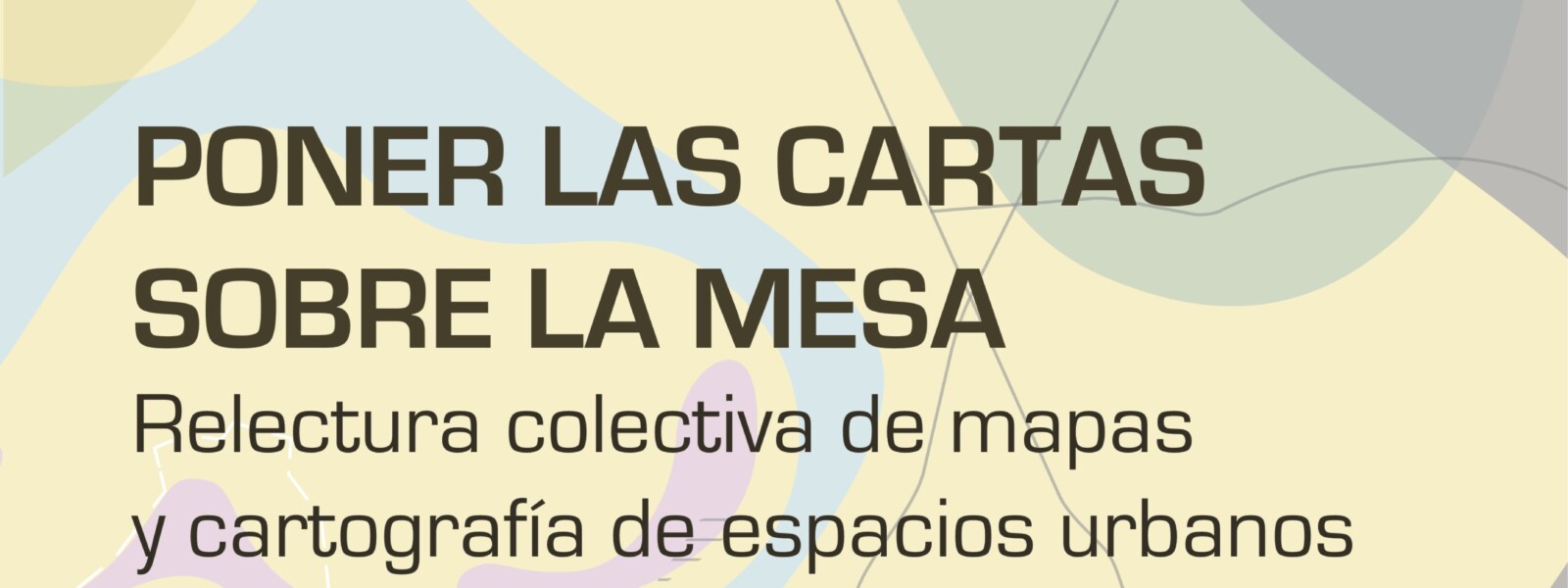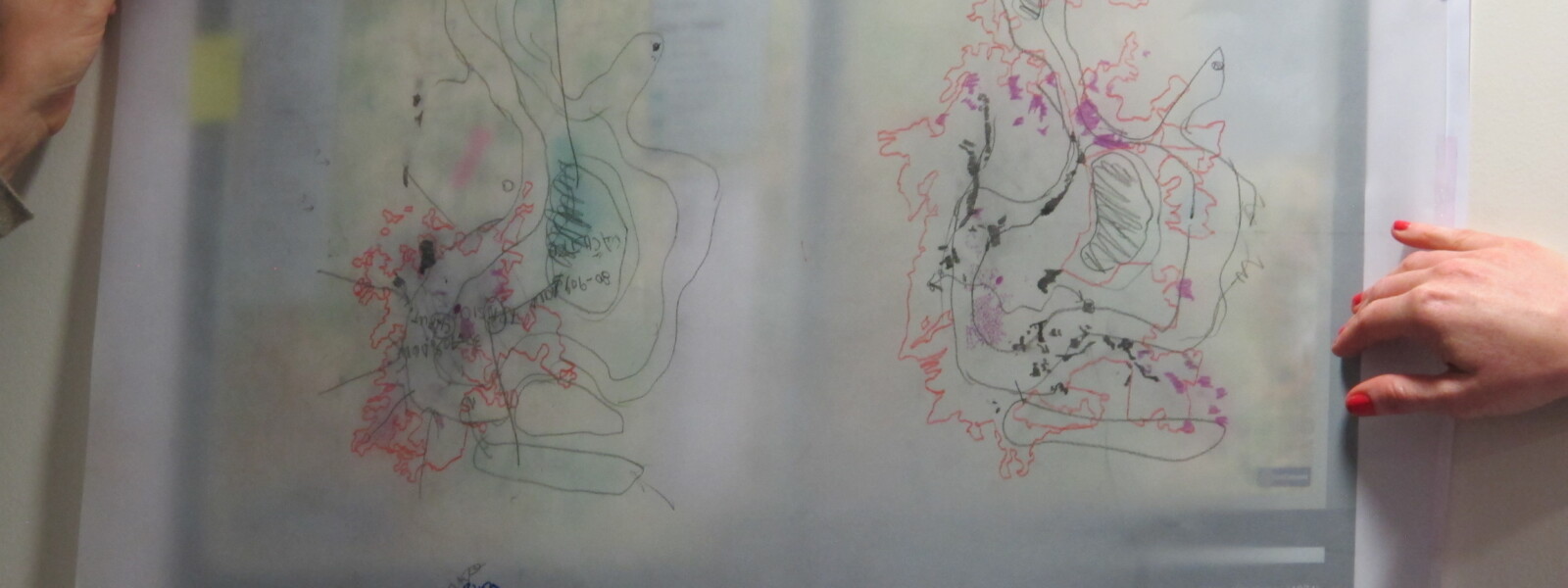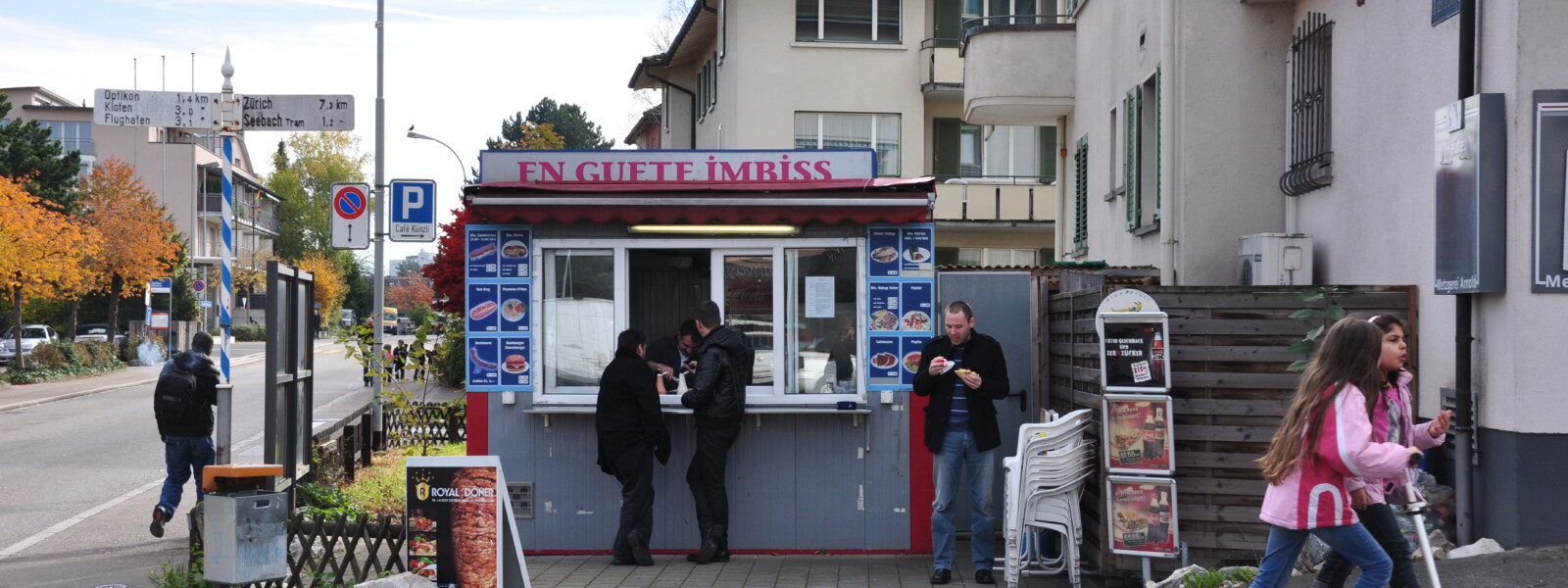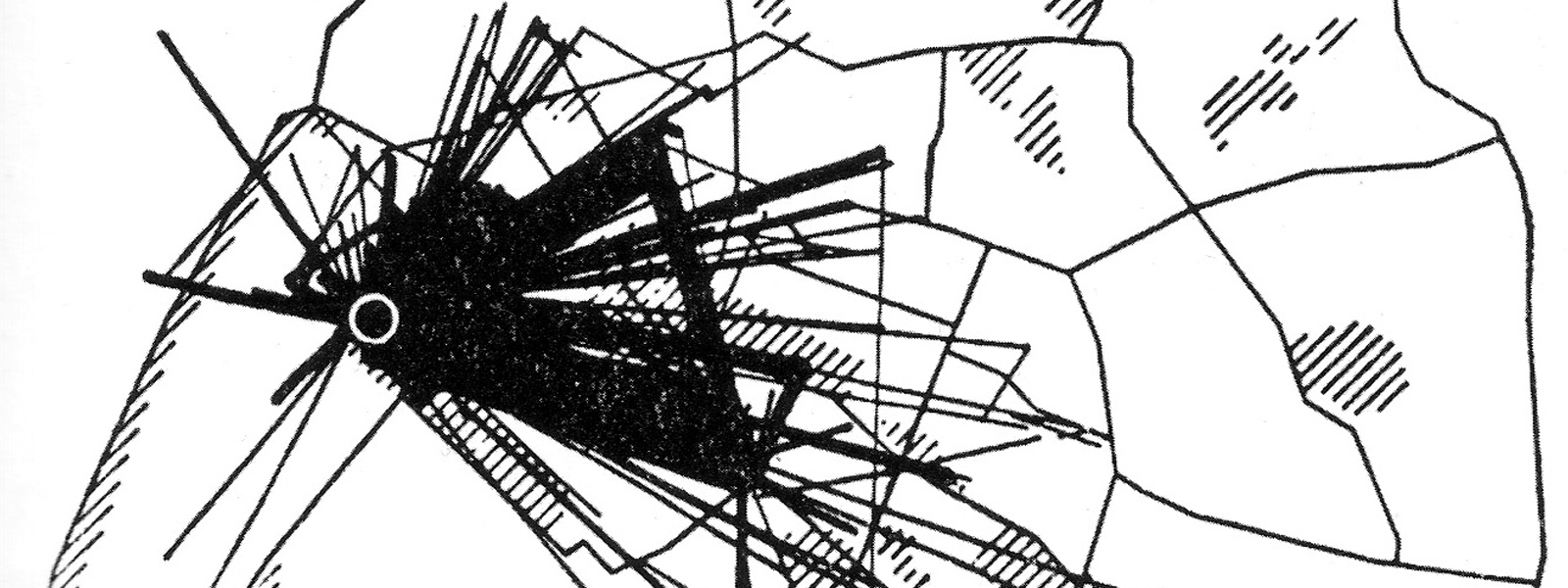Streule, Monika (2019) IJURR book review. Harrison, John and Michael Hoyler 2018 (eds.), Doing global urban research. Los Angeles; London; New Delhi; Singapore; Washington DC; Melbourne: SAGE. International Journal of Urban and Regional Research 43.6, 1210–1212. DOI: 10.1111/1468-2427.12862
Page 12 of 19
Poner las cartas sobre la mesa: Collective re-readings of mappings across urban worlds
Mexico City – 2019
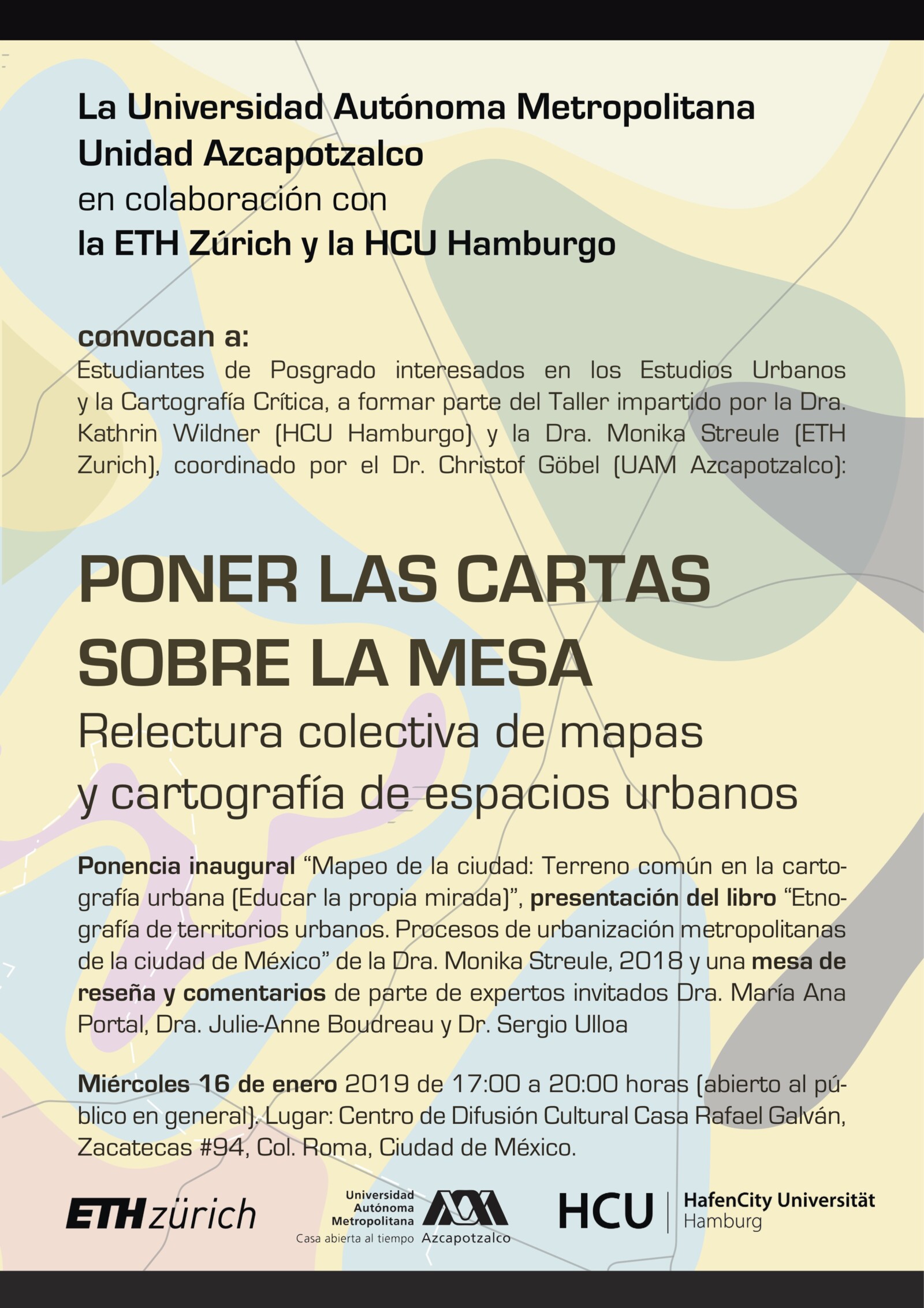
Mapping is an ever-present tool for transdisciplinary and critical urban research, which is met with interest not only in the social sciences, but also in the framework of artistic and/or activist research projects. Mexico City with its dense fabric, social heterogeneity, and simultaneous existing and traceable multi-layered historical references, i.e. colonialities and modernities, offers a paradigmatic research field to further develop much needed novel mapping tools in current urban studies. When confronted with such complex urbanization processes and diverse social realities existing side-by-side, maps are particularly appropriate as an experimental method for visualizing qualitative data and translating it into spatial representations. It is through this process of translation and mapping that knowledge is generated. Unlike text, maps can address complex contexts by representing theses that can be visually ‘read’ at the first glance. Mapping is therefore particularly suited to conveying results of analyses – and to imagining different realities. Additionally, maps can draw attention to connections that only become visible once they are visualized topographically. Not least, this spatialization of knowledge makes it possible to develop a different understanding of urbanity within and beyond the specificity of the Mexican Megalopolis, and to consider another possible urban future.
The invited mapping projects that will be introduced and discussed demonstrate, through concrete urban case studies, just how diverse and innovative mapping methods can be. This is particularly the case when applied in both today’s urban research and daily political praxis. The aim of the workshop is to extract and convey such methods. In doing so, the communication of methodical knowledge will play a central role. Working with the example of concrete mappings, we will practice a collaborative and dialogical process, questioning and further developing methods of urban research. While making public and developing mapping processes collaboratively – working via the suggested process of re-reading maps – we will put mapping to use, addressing urgent questions currently relevant to Mexico City, such as divers processes of massive urban reinvestment, gendered violence against women*, or the Mexican everyday reality of threating earthquakes and floods. In this sense, the workshop should contribute a collective and participatory process of knowledge-production, opening scope for action through urban interventions.
Co-chair and convener of the seminar and workshop (with Kathrin Wildner, HafenCity University, and Christof Göbel, Universidad Autónoma Metropolitana – Azcapotzalco, Mexico City, January 14–19, 2019
This course conveys an introduction into methods of urban research in social sciences through lectures and accompanying exercises. It treats the basic principles of scientific research, literature research, different forms of participant observation, qualitative interviews (expert interviews and ethnographic interviews), and the analysis of urban qualities.
This course aims at enabling students of architecture to use sociological analysis as basis for concrete projects in architecture and urban design. It is based on a specific set of methods that is applied in design studios (integrated disciplines) as well as in the master thesis (supplementary discipline sociology).
Sociology II: Current Perspectives in Urban Studies
Lecture Spring Semester – yearly recurring course
This series of lectures enables students to comprehend the built environment in its social context. It approaches the architectural profession from two different angles: macro-sociological and micro-sociological.
In the first part, Sociology II focuses on current perspectives of analysis in urban studies. Theoretical approaches are presented with the help of concrete case studies. First, the postcolonial perspective in urban studies will be introduced, illustrated with examples of empirical research. This part concludes with an introduction into scientific research by presenting different methods in the analysis of urbanization processes in Mexico City, Tokyo and San Francisco (lecturer: Monika Streule). In the second part, different processes of urban regeneration will be discussed looking at various case studies in Europe, North America and North Africa. Followed by a presentation of different forms of gentrification (lecturer: Sandra Guinand). In the third part, different models of housing are discussed (lecturer: Marie Glaser).
